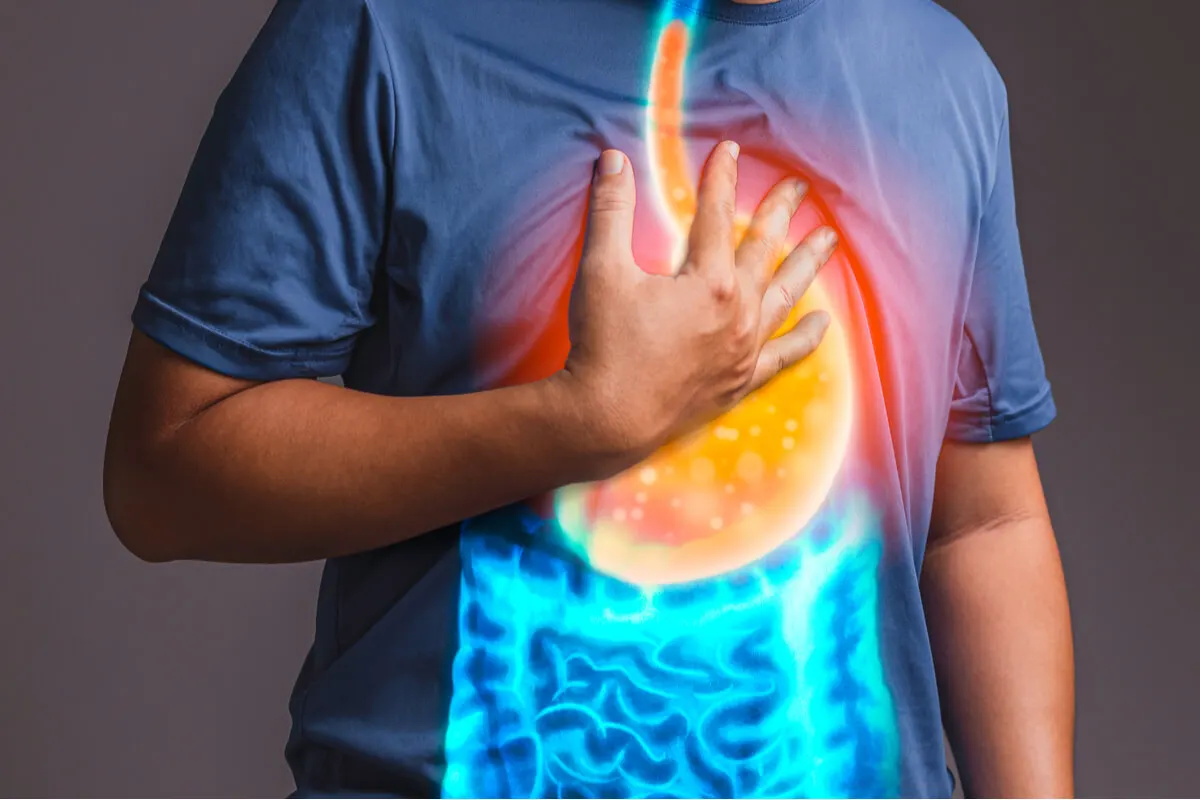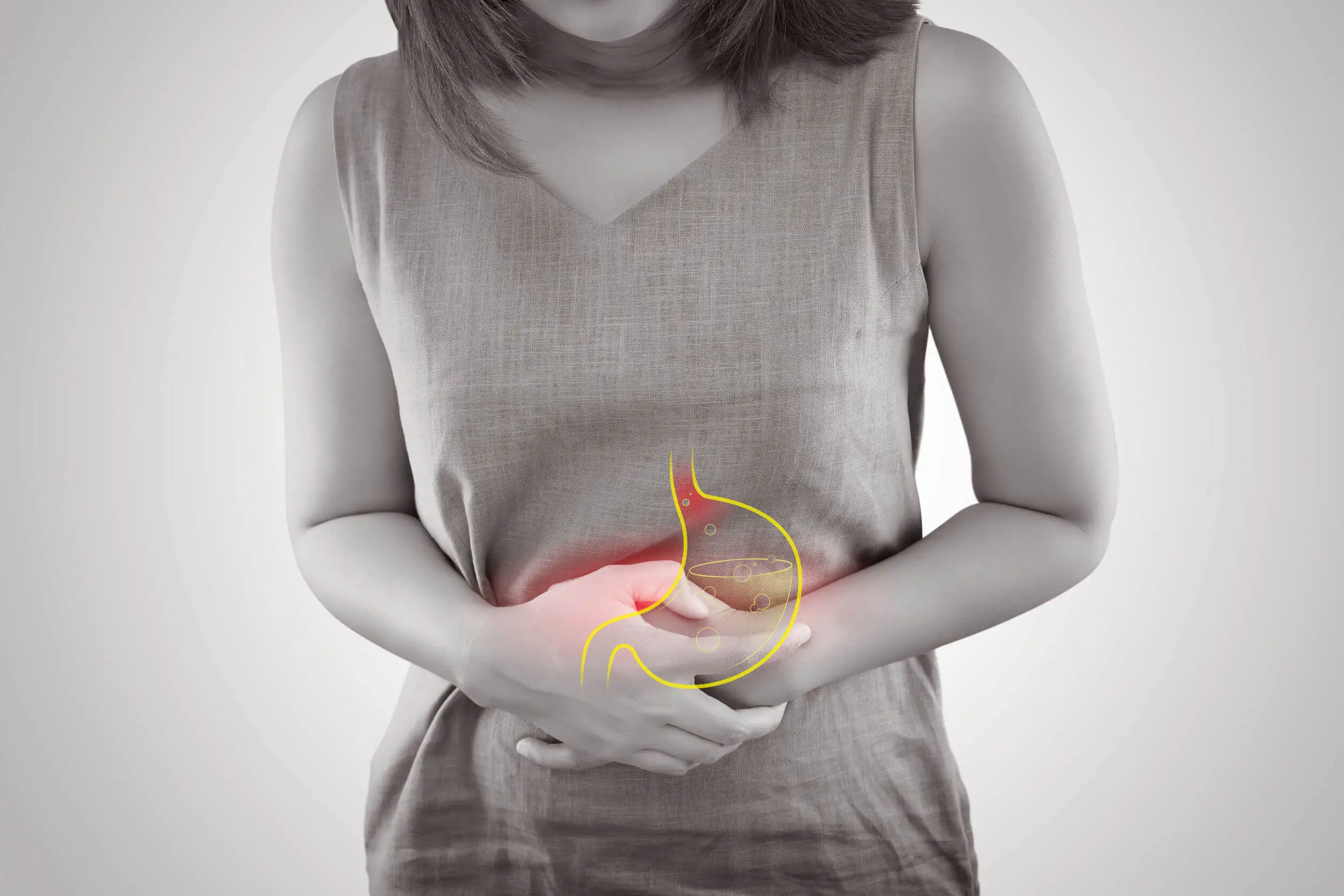10 Frequently Asked Questions about Heartburn and Reflux


Written and verified by the doctor Mariel Mendoza
Heartburn and reflux are two of the most frequent causes of consultation for gastrointestinal symptoms. Gastroesophageal reflux is one of the most common diseases because it affects about 20% of the population. It manifests with symptoms that include a burning sensation in the pit of the stomach, regurgitation, and a bitter sensation in the mouth.
Both heartburn and occasional reflux are harmless. However, when symptoms do not improve with treatment or are sustained over time, they require medical consultation. If you have questions about it, continue reading, because we will take a look at some of the most common questions about this condition and their answers.
1. What is heartburn?
Heartburn is the term given to the burning or burning sensation that occurs in the “pit of the stomach” (epigastrium), as a result of gastric acid reflux.
The burning sensation is usually centered in the middle of the chest, above or below the sternum. It can be intermittent or fixed, and sometimes, instead of burning, it can manifest as pressure.
2. What is acid reflux that happens in heartburn and reflux?

Acid reflux, or gastroesophageal reflux disease, occurs due to a deficiency in the esophageal reflux barrier. To prevent gastric contents from backing up from the stomach into the esophagus, there is a valve called the “lower esophageal sphincter”, which prevents acid from backing up into the esophagus.
When this valve is compromised, there is reflux of acid into the esophagus which irritates it, causing the symptoms of a burning sensation, regurgitation, nausea, etc.
We think you may also enjoy reading this article: Gastroesophageal Reflux Disease: Everything You Need to Know
3. What are the dangers of acid reflux?
Heartburn and reflux can cause chronic irritation of the esophagus. This can, in turn, lead to changes in the lining of the esophagus, developing morphological changes that trigger Barrett’s esophagus. This disease could increase the risk of developing esophageal cancer.
In addition, heartburn can cause ulcers and strictures or narrowing, which can affect the respiratory system by causing laryngitis, asthma, chronic cough, voice changes, or recurrent upper and lower respiratory infections.
4. What foods can exacerbate heartburn?
Although heartburn and reflux are very common, symptoms can be worsened by a variety of foods, such as the following:
- Spicy foods
- Onions
- Citrus fruits
- Tomatoes
- Fried or fatty foods
- Mint
- Chocolate
- Sauces
- Large meals
- Consumption of alcoholic, carbonated, coffee, or caffeinated beverages
5. In addition to foods, what else can exacerbate symptoms?
Acid reflux can be aggravated by other situations such as the following:
- Excess abdominal fat
- Pregnancy
- Wearing tight clothing
- Wearing belts
6. When should heartburn be a concern?

Occasional, intermittent heartburn and reflux may not be important. Except in those cases in which it manifests itself frequently, interferes with daily routines, does not improve with the use of medications, or worsens over time. In all these situations, it requires timely medical evaluation.
Other symptoms that should draw attention are:
- Blackish or tarry-colored vomit
- Difficulty or pain in swallowing
- Vomiting blood
- Unexpected weight loss
7. What is the treatment for heartburn and acid reflux?
Treatment for gastroesophageal reflux includes:
- Changes in diet and lifestyle.
- Avoiding caffeine, spicy food, mint, chocolate, and alcoholic beverages.
- Sleeping with your head slightly elevated (at 30 degrees).
- Not lying down on a flat surface for the first 60 minutes after eating.
- Eating less copious meals and eating more frequently.
- Not consuming food in the 3 hours before sleeping.
- Medical therapy aimed at neutralizing acid.
Medical treatment for gastroesophageal reflux seeks to neutralize or decrease gastric acid.
Like this article? You may also like to read: Gastroesophageal Reflux Disease (GERD): Symptoms and Treatment
8. What are the medications that can be indicated for these cases?
In addition to antacids, proton pump inhibitors or histamine receptor blockers are used. The former neutralize excess stomach acid to improve the sensation of heartburn.
Proton pump inhibitors, on the other hand, directly inhibit the production of hydrochloric acid, while histamine receptor blockers do so indirectly.
However, long-term use and high doses can cause an increased risk of osteoporosis, serious infections, or magnesium deficiency that can affect heart rhythm.
9. Are there foods that help heartburn and reflux?
Heartburn can benefit from eating foods that are high in mucilage and emollient properties that protect the stomach mucosa and reduce symptoms. These foods include bananas, pumpkin, zucchini, cooked carrots or potatoes, oatmeal, turmeric, and almonds.
10. Are there drugs that can exacerbate it?
Some drugs, such as progesterone and some antidepressants, affect the lower esophageal sphincter. Thus, they favor the appearance of gastroesophageal reflux
When heartburn and reflux are not intermittent, they require medical evaluation
The reflux of gastric acid from the stomach into the esophagus generates various symptoms: burning sensation, discomfort, bitter taste, difficulty or pain in swallowing, and abdominal distention. If symptoms persist or if you have any questions, you should always see your doctor.
All cited sources were thoroughly reviewed by our team to ensure their quality, reliability, currency, and validity. The bibliography of this article was considered reliable and of academic or scientific accuracy.
- Arín A, Iglesias M. Enfermedad por reflujo gastroesofágico. Anales Sis San Navarra 2003;26(2). Disponible en https://scielo.isciii.es/scielo.php?script=sci_arttext&pid=S1137-66272003000300008.
- Armas H, Ferrer J. Reflujo gastroesofágico. Asociación Española de Pediatría S.F. Disponible en www.aeped.es/sites/default/files/documentos/19-RGE.pdf.
- Melquizo M, Ruíz M. Reflujo gastroesofágico. Rev. colomb. cir 1990;5(1).
- Ramos J, et al. Acidez gástrica, Helicobacter pylori y giardiasis en pacientes con síndrome ulceroso. Informe preliminar. Rev Cub Med Mil 2008;37(4). Disponible en scielo.sld.cu/scielo.php?script=sci_arttext&pid=S0138-65572008000400010.
This text is provided for informational purposes only and does not replace consultation with a professional. If in doubt, consult your specialist.








